1960s
Follies of the Madmen #477
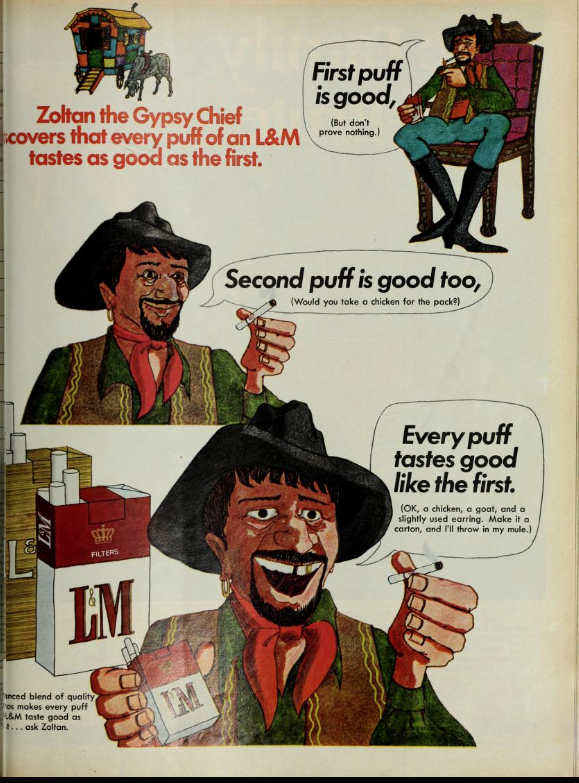
Our cigarettes are enjoyed by problematical outcasts and outsiders.
Source of ad.
Posted By: Paul - Mon May 25, 2020 -
Comments (3)
Category: Business, Advertising, Corporate Mascots, Icons and Spokesbeings, Ethnic Groupings, Stereotypes and Cliches, Tobacco and Smoking, 1960s
Tuberosity Meter
In 1960, Thomas Scoville received a patent for a device for measuring tuberosity. He explained that the purpose of measuring tuberosity was to improve the fit of chairs:
Even after looking up the meaning of the word 'tuberosity' in the dictionary, it took me a while to figure out what exactly Scoville's device was measuring, and what it possibly had to do with chairs. Because the dictionary simply defined tuberosity as a 'rounded swelling.' Some more googling revealed that Scoville must have been referring to the Ischial tuberosity, or 'sitting bone'. As defined by wikipedia, this is:
Posted By: Alex - Sun May 24, 2020 -
Comments (1)
Category: Body, Furniture, Inventions, Patents, 1960s
Safety Kisses
Throughout the 20th century, it seemed to be widely assumed that the mood of the husband was determined by the behavior of his wife at home. So, concluded the District of Columbia's traffic safety office in 1963, if a man was in a 'disgruntled disposition' and consequently got into a traffic accident, it must have been the fault of his wife who didn't cheer him up adequately when he left home with a goodbye kiss "as though she meant it."See also: Whose fault is it when your husband is cross at breakfast?
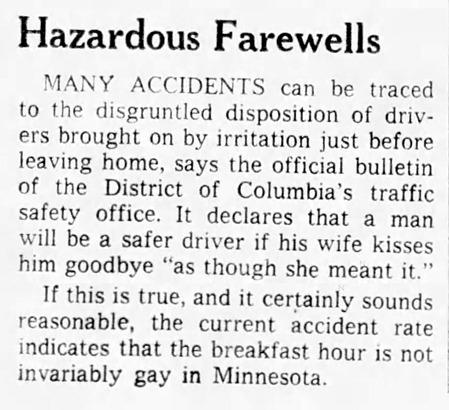
Minneapolis Star - Nov 12, 1963
Posted By: Alex - Wed May 20, 2020 -
Comments (2)
Category: Highways, Roads, Streets and Traffic, Gender, Husbands, Wives, 1960s
Peter the Hermit of Hollywood
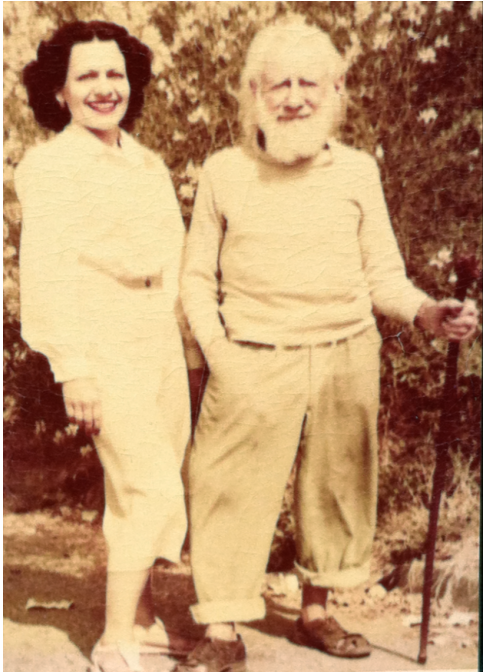
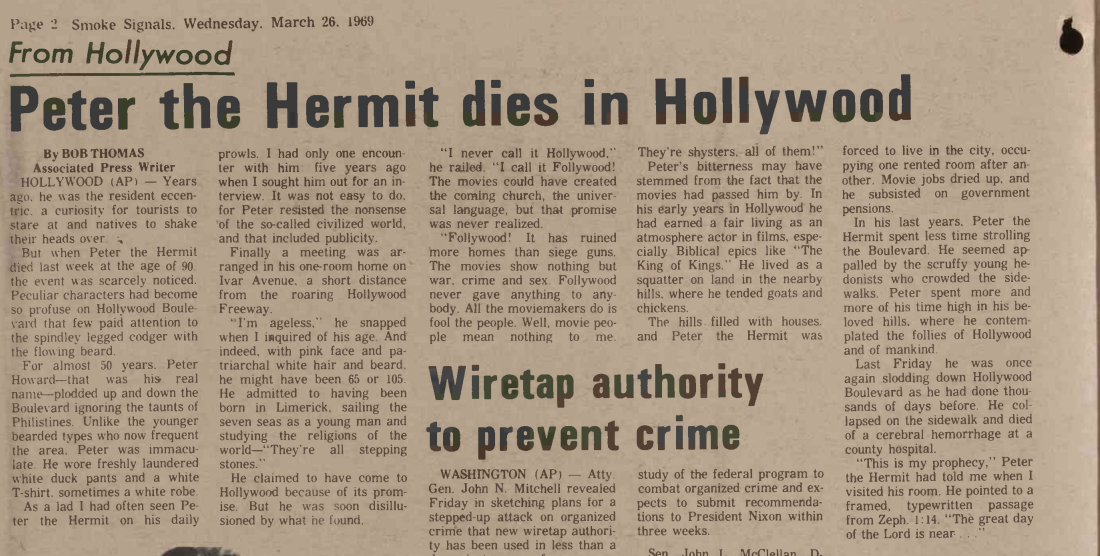
Article source.
More anecdotal articles here.
Posted By: Paul - Wed May 20, 2020 -
Comments (3)
Category: Eccentrics, Bohemians, Beatniks, Hippies and Slackers, Movies, 1960s, Twentieth Century
Perfume-O-Books
In 1960, Monarch Books announced the launch of Perfume-o-Books. These were books infused with perfume.They had plans to use a saddle-leather scent for westerns, floral odors for flower-arrangement books, and food scents for cookbooks.
All of which seemed logical. However, they decided to launch the line with three movie tie-in titles: "The Enemy General," by Dan Pepper, "The Stranglers of Bombay," by Stuart James, and "The Brides of Dracula," by Dean Owen. These three titles were each infused with a "Chanel 5 type perfume."
They seem like very odd titles to have been perfumed. And evidently the perfume didn't appreciably help sales, because no more perfume-o-book titles were ever printed.
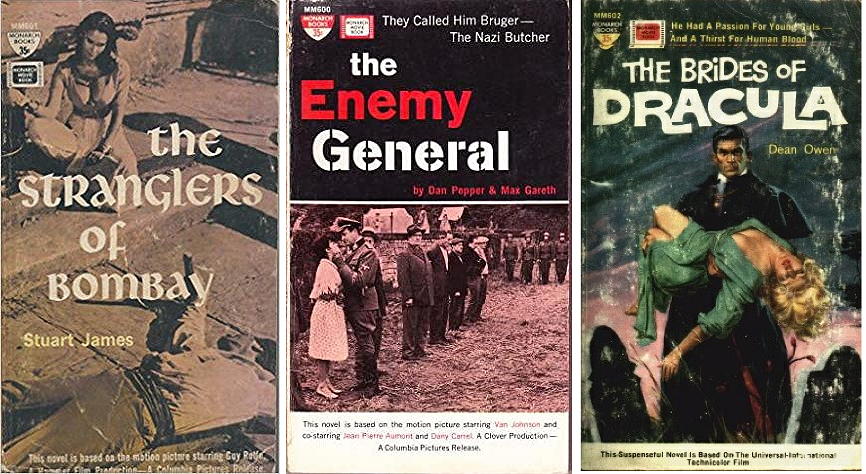
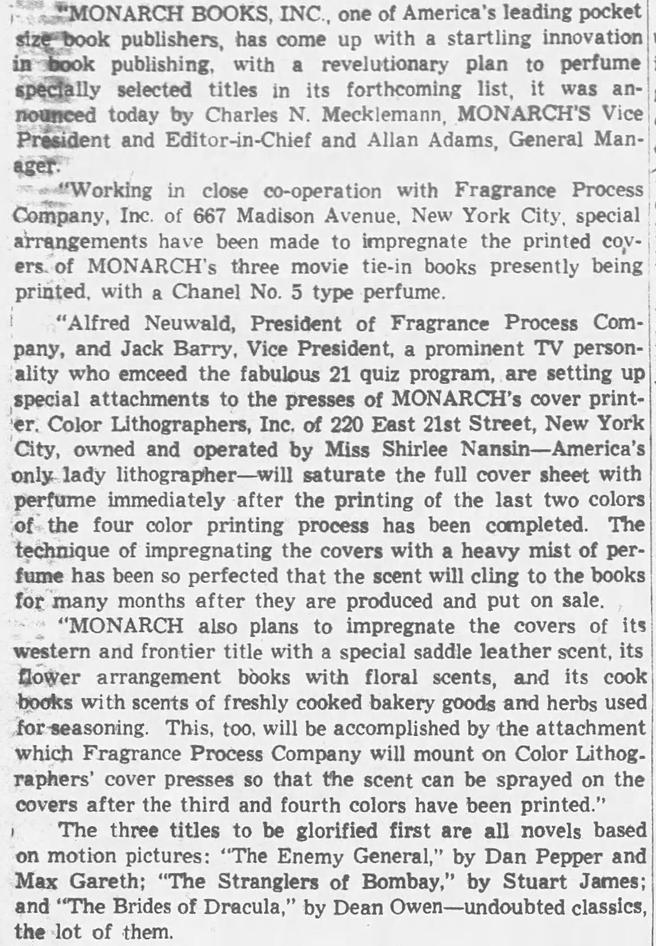
Richmond Times Dispatch - Apr 17, 1960
Posted By: Alex - Mon May 18, 2020 -
Comments (3)
Category: Books, 1960s, Perfume and Cologne and Other Scents
Run, Buddy, Run
The Wikipedia page.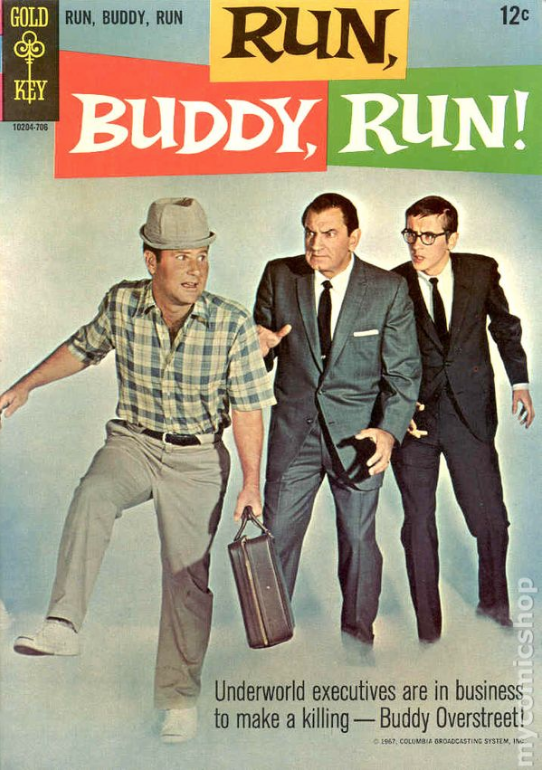
Posted By: Paul - Fri May 15, 2020 -
Comments (3)
Category: Geeks, Nerds and Pointdexters, Ineptness, Crudity, Talentlessness, Kitsch, and Bad Art, Television, Stupid Criminals, 1960s
Debbie Drake, fitness pioneer
Debbie Drake was the first woman to have a daily exercise show on TV. The show's intended audience was housewives, but as the Physical Culture Study blog notes, it was more popular with men:
Posted By: Alex - Mon May 11, 2020 -
Comments (5)
Category: Exercise and Fitness, 1960s
Follies of the Madmen #476
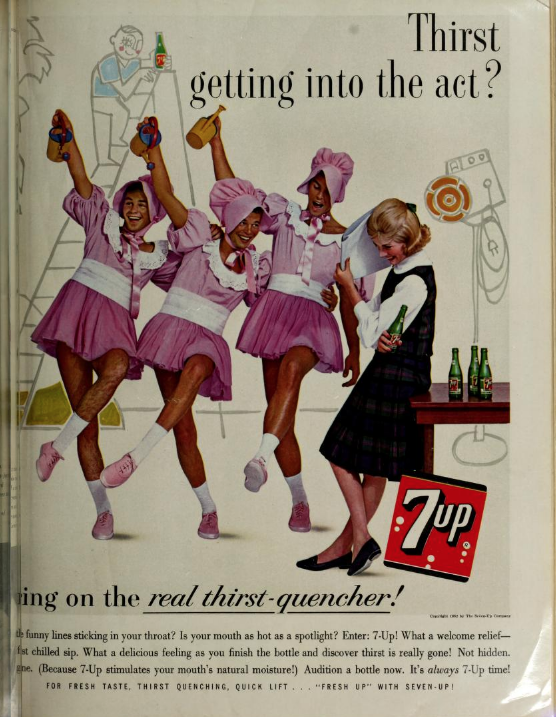
Source.
Posted By: Paul - Sun May 10, 2020 -
Comments (0)
Category: Ambiguity, Uncertainty and Deliberate Obscurity, Business, Advertising, Soda, Pop, Soft Drinks and other Non-Alcoholic Beverages, 1960s, Gender-bending
Instant Bananas
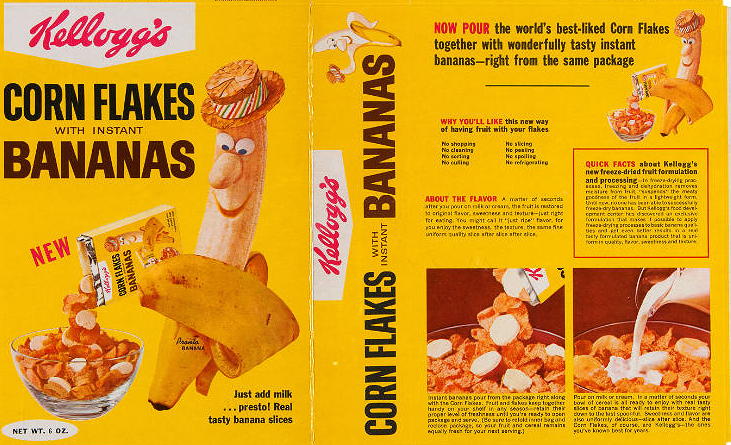
Scott Bruce and Bill Crawford offer some context in their book Cerealizing America: The Unsweetened Story of American Breakfast Cereal:
In 1966, Kellogg pulled the plug on Corn Flakes and Instant Bananas. "We tested the market carefully, we tried, we failed, and we're getting out of the market," Kellogg's Ken Englert told Consumer Advertising magazine. Without informing the star of their decision, Kellogg decided to move Durante over from Instant Bananas to Kellogg's main line, Corn Flakes. "Everything was kept quiet until Carl Hixon [a Burnett writer] and myself went to New York to shoot him in a couple of commercials for Kellogg's Corn Flakes," recalled commercial director Rudy Behlmer. "Suddenly he looks at the [story] boards and he says, 'Where are da bananas?' and we said, 'Well, Jimmy… this is without bananas,' and he said, 'No bananas, no Durante.'"
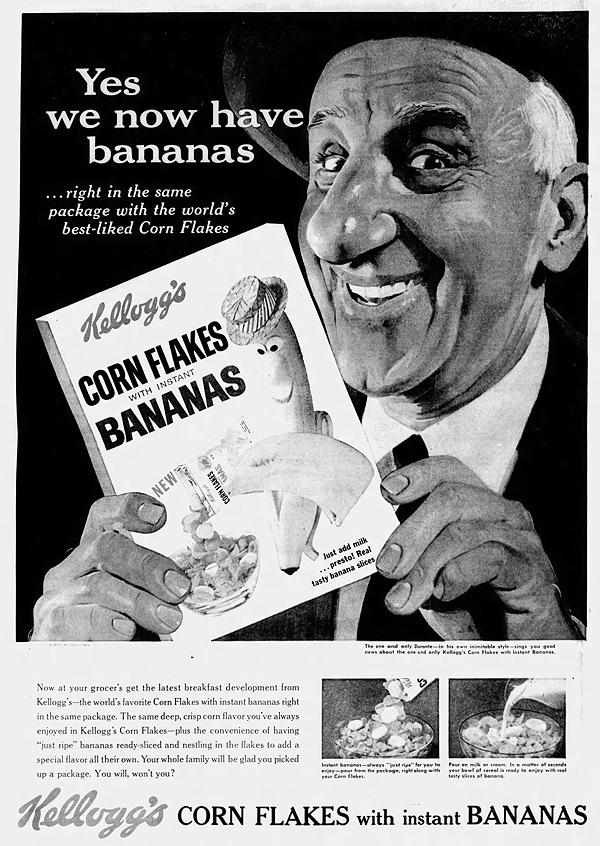
Wisconsin State Journal - Mar 24, 1965
Posted By: Alex - Thu May 07, 2020 -
Comments (3)
Category: Cereal, 1960s, Bananas
Maurice Williams and the Zodiacs, “High Blood Pressure”
Medical intervention is definitely required for this singer and his gyno-pathic disease.
Posted By: Paul - Mon May 04, 2020 -
Comments (0)
Category: Music, 1960s, Disease

| Who We Are |
|---|
| Alex Boese Alex is the creator and curator of the Museum of Hoaxes. He's also the author of various weird, non-fiction, science-themed books such as Elephants on Acid and Psychedelic Apes. Paul Di Filippo Paul has been paid to put weird ideas into fictional form for over thirty years, in his career as a noted science fiction writer. He has recently begun blogging on many curious topics with three fellow writers at The Inferior 4+1. Contact Us |




